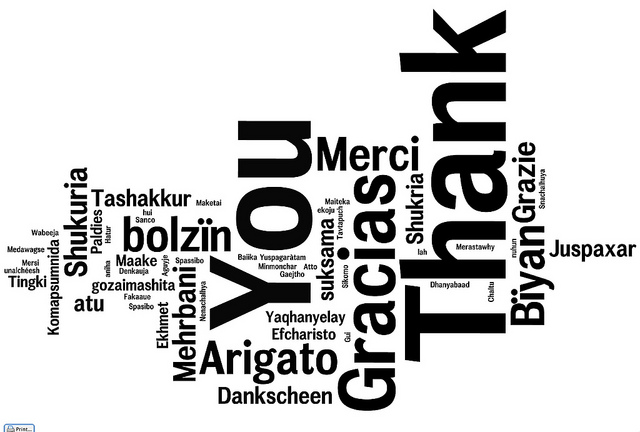Your Words Make All The Difference.
 Sometimes people are unskillful with their words, and what they say can have multiple interpretations. But, though you don’t have control over their words, you do have control over how you interpret them. And the translation you choose makes all the difference. On the flipside, when you choose your words skillfully they can have a singular translation. And that, too, makes all the difference. Here are some examples.
Sometimes people are unskillful with their words, and what they say can have multiple interpretations. But, though you don’t have control over their words, you do have control over how you interpret them. And the translation you choose makes all the difference. On the flipside, when you choose your words skillfully they can have a singular translation. And that, too, makes all the difference. Here are some examples.
It can’t be done. Translations: 1) We’ve never tried it and we don’t know how to go about it. 2) We know you’ll not give us the time and the resources to do it right, and because of that, we won’t be successful. 3) Wow. I like that idea, but we’re already so overloaded. Do you think we can talk about that in the second half of the year?
We tried that but it didn’t work. Translations: 1) Twelve years ago someone who made a prototype and it worked pretty well. But, she wasn’t given the time to take it to the next level and the project was abandoned. 2) We all think that’s a wonderful idea and really want to work on it, but we’re too busy to think about that. If I come clean, will you give me the resources to do it right?
Why didn’t you follow the best practice? Translations: 1) I’m afraid of the uncertainty around this innovation work and I’ve heard best practices can reduce risk. 2) I don’t really know what I’m talking about, but this seems like a safe question to ask without tipping my hand. 3) I want to make a difference at the company, but I’ve never been part of a project with so much newness. Can you teach me?
That’s not how we do it. Translations: 1) I’ve always done it that way, and thinking about doing it differently scares me. 2) Though the process is clunky, we’ve been told to follow it. And I don’t want to get in trouble. 3) That sounds like a good idea, but I don’t have the time to think through the potential implications to our customers.
What are you working on? Translation: I’m interested in what you’re working on because I care about you.
Can I help you? Translation: You’ve helped me in the past and I see you’re in a tough situation. I care about you. What can I do to help?
Good job. Translation: I want to positively reinforce your good work in front of everyone because, well, you did good work.
That’s a good idea. Translation: I think highly of you, I like that you stuck out your neck, and I hope you do it regularly.
I need help. Translation: I know you are highly capable and I trust you. I’m in a tight spot here. Can you help me?
Thank you. Translation: You were helpful and I appreciate it. Thank you.
How you choose your words and how you choose to assign meaning to others’ words make all the difference. Choose skillfully.
image credit — woodleywonderworks
 Mike Shipulski
Mike Shipulski